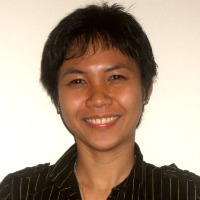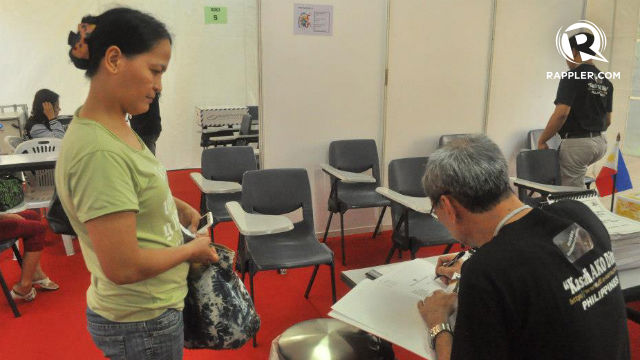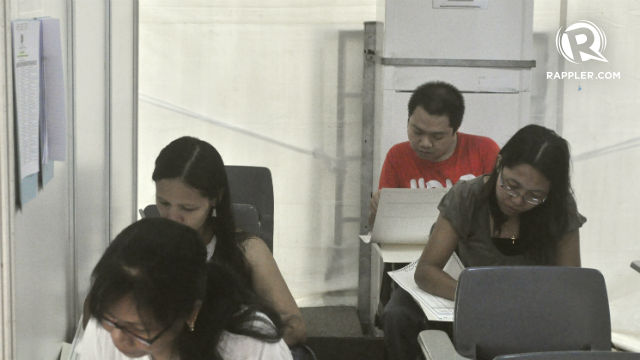SUMMARY
This is AI generated summarization, which may have errors. For context, always refer to the full article.
 The past 3 Saturdays I was at the Philippine embassy as an Overseas Absentee Voting (OAV) volunteer, the atmosphere had been consistently quiet. Even on weekends, voters arrive in trickles. But a surge in the number of poll-goers is anticipated in the last stretch of the election.
The past 3 Saturdays I was at the Philippine embassy as an Overseas Absentee Voting (OAV) volunteer, the atmosphere had been consistently quiet. Even on weekends, voters arrive in trickles. But a surge in the number of poll-goers is anticipated in the last stretch of the election.
As of May 5, only 4,422 have exercised their vote. This is less than 10% of the total 50,063 registered voters. Automated polls have been implemented in Singapore since 2010. Overseas voting runs from April 13 to May 13 and electorates only vote for the Senate and the party-list groups.
When asked about his opinion behind the low turn-out of voters, Consul Victorio Dimagiba Jr, chair of the OAV secretariat in Singapore, said that Filipino voters in Singapore are probably more inclined to vote in a presidential election, rather than a mid-term election. However, this view is not shared by the 2010 election figures where out of 31,851 registered voters, only 9,598 actually went to the precinct and voted.
For the duration of the overseas voting period, the embassy is open every day from 9 am to 5 pm. In March this year, the Philippine embassy in Singapore ceased their Sunday operations and moved back to a Monday to Friday work week as part of its continuous efforts to upgrade its services, and to facilitate the conduct of the OAV.

Challenges
While the voting process has so far been smooth, it is not without glitches. Complaints aired through the embassy’s Facebook page include missing names in the Commission on Election’s (Comelec) website. Many also have missed the registration date, which lasted for almost a year from November 2011 to October 2012.
When Comelec Chair Sixto Brillantes Jr spoke to the volunteers during his recent visit in Singapore a week before OAV commenced, he raised the possibility of online voting in the future. The Comelec hopes to put this in place in time for the presidential election in 2016. If this pushes through, an increase in the overseas electorate is expected, thanks to digitally connected overseas Filipino voters.
In my estimation, Comelec has done a good job to “lure” overseas Filipino voters (OFWs) to register and vote. There has been an increase in SMS blasts, multiple announcements on the Philippine embassy Facebook page, as well as continuing distribution of flyers in churches and popular Filipino hang-out spots such as Lucky Plaza in Orchard.

Volunteers from different Filipino organizations like the UP Alumni Association of Singapore and Cebu Institute of Technology have been mobilized to help as marshals, medics and information advocates.
According to some kababayans, they declined to vote because “pare-pareho lang naman ang tumatakbo. Wala rin namang mangyayari.” (Those running are the same people. Nothing will change). While there’s some grain of reality to it, the long-term danger is allowing non-participation to dictate on the future of the country.
“OFWs must take the election seriously if they want their issues heard in the Senate,” said Brillantes.
Post Martial Law, voting should be part of our consciousness as this is an essential ingredient of a democratic country. – Rappler.com
Ava Patricia C. Avila is a PhD student at Cranfield University, UK. She is currently based in Singapore.
Add a comment
How does this make you feel?
There are no comments yet. Add your comment to start the conversation.